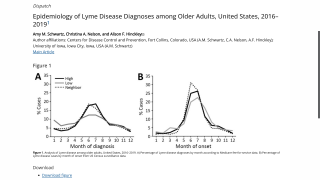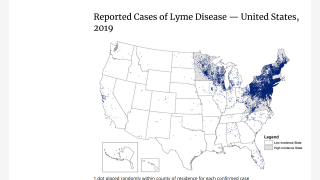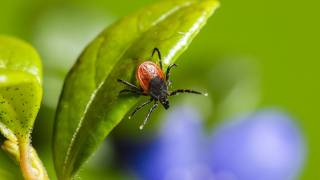First Lyme Disease Vaccine Licensed for Mice

The U.S. Department of Agriculture recently issued a Conditional Licensure for a novel oral vaccine against the wildlife spread of Borrelia burgdorferi, the bacterium responsible for Lyme disease.
Announced by US Biologic, Inc. on May 9, 2023, this innovative Borrelia Burgdorferi Bacterin vaccine is spray-coated onto pellets that mice consume.
As the expression goes, if you give a mouse a vaccine..... good things happen!
The only known vector of Lyme disease is blacklegged ticks, which are infected primarily by feeding on mammals, particularly white-footed mice.
If infected with Borrelia burgdorferi, these ticks feed on humans causing Lyme disease.
US Biologic offers this Lyme disease vaccine in residential settings, pest management professionals, public lands such as parks and commercial areas, and recreational facilities, including golf courses.
Furthermore, the Company is working with federal and state health agencies that service the areas most at risk for infection.
Chris Przybyszewski, the Company's President, and Board Secretary, informed Precision Vaccinations, "Three out of four emerging infectious diseases come from animals. As such, any serious approach to public health must include those animals involved in disease transmission."
"At the same time, we must go where the animals live (e.g., backyards). We must marshal existing workforces, such as pest-management professionals, who can find an attractive business model in controlling disease transmission in reservoirs and vectors."
"Considering pest-management professionals as "public health professionals" is a paradigm change from a consumer perspective."
"But it makes sense if bringing the consumer an understanding of the mechanisms of infection control."
The Company's proprietary OrisBio oral-delivery platform is changing global disease prevention, empowering the safe, effective, and cost-efficient delivery of vaccines and therapeutics.
Each animal species is different, as are its feeding habits, its environments, and its microbiome. Understanding an animal's digestive tract is essential in delivering vaccines to the right place in the animal's intestines.
Field trials demonstrating real-world impact have been conducted and co-published by the Cary Institute of Ecosystem Studies, the U.S. CDC, the Connecticut Agricultural Experiment Station, the University of Pennsylvania, the University of Tennessee Health Science Center, Yale University, and others.
Lyme disease is caused by Borrelia burgdorferi spirochetes, transmitted to humans by certain Ixodes spp. ticks says the CDC. Most persons recover fully, especially those who receive early and appropriate treatment.
However, Lyme disease infections can become a multi-year health concern.
The frequency of Lyme disease is often misunderstood as substantial underreporting occurs.
Note: Lyme disease vaccines for humans remain in late-stage clinical trials.
Our Trust Standards: Medical Advisory Committee
























